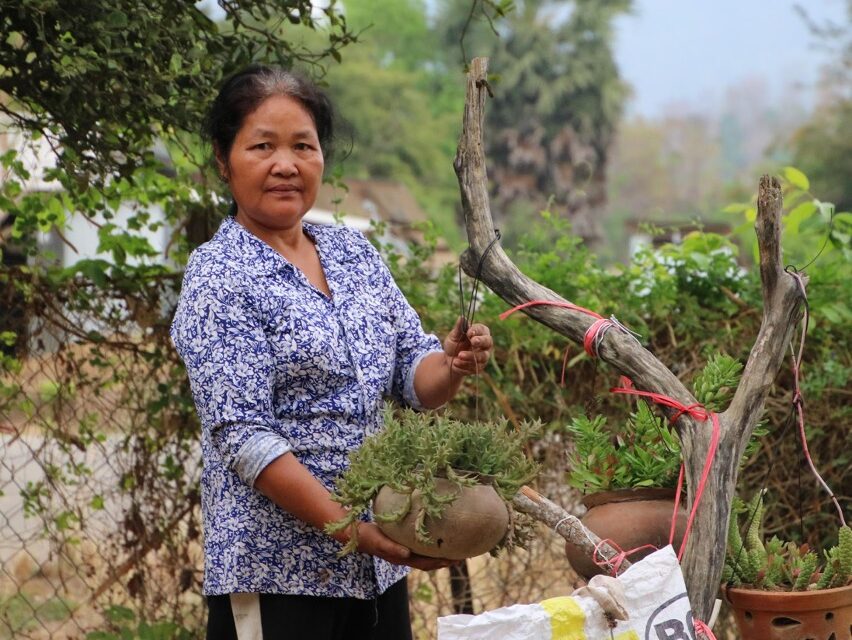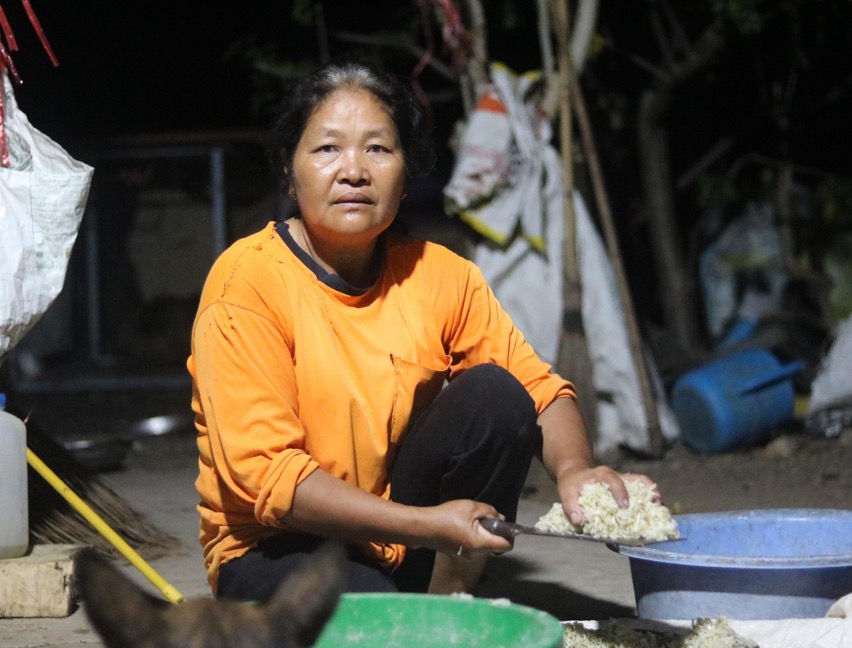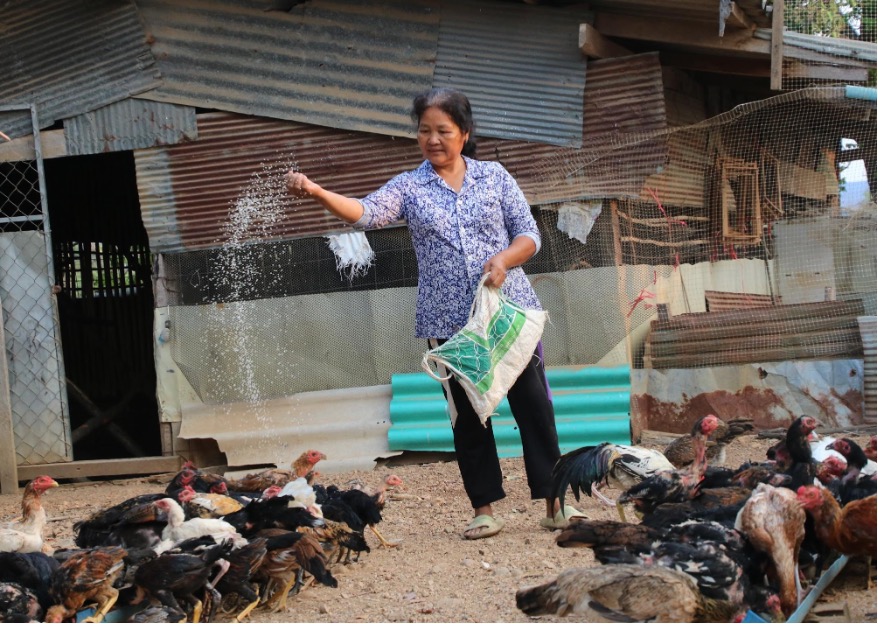In 2000, they moved to live near Phsar Prom, also known as Ochheukram Village, on the border of Cambodia in Pailin province. The government granted her family land, which they cultivated, growing a variety of crops and raising chickens and bees. Through her work in agriculture, Nuon Chantha saw the potential to establish a small business.
In addition to her duties as a housewife, she is actively involved in agriculture. She rises early to prepare meals for her family, tend to the poultry, and work on the farm. She returns home around midday to cook again, clean clothes, check on the chickens, feed them, water the crops, and, if necessary, continue working into the night.
Nuon Chantha observed that rural women often face domestic violence, drunken husbands, financial neglect, and jealousy. These issues are common burdens. “When the husband receives his wages, he neither shares them with her nor supports the household,” shared a community member with personal experience of these challenges. These husbands do not care for their wives’ well-being. In the past, women, when ill, have had to be taken to the hospital and borrow money due to a lack of funds. Despite these challenges, they exert great effort to provide for their families and care for their children, often facing financial and emotional strains that lead to mental health struggles Seeing the struggles faced by the young woman next door, she advised her to cultivate vegetables instead of leaving any empty space unoccupied so that she might feed her family and sell the remaining items to generate income for raising kids.
Limited access to social services and lower educational levels leave many rural women in a cycle of vulnerability. Women must speak out and resist their husbands’ domination. To protect themselves from abuse and violence, they should be able to work independently, earn a living, and educate themselves about social issues and self-defense techniques, building a more secure future.








![[IN PHOTOS] In Defense of Human Rights and Dignity Movement (iDEFEND) Mobilization on the fourth State of the Nation Address (SONA) of Ferdinand Marcos, Jr.](https://focusweb.org/wp-content/uploads/2025/07/1-150x150.jpg)



